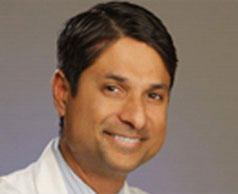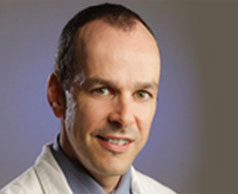Services
High Blood Pressure Management
 Despite taking medication, many patients have problems regulating their blood pressure. The physicians of The Heart Medical Group are here to help. Our physicians use advanced medical therapies, and offer counseling on lifestyle modifications and natural pathways, to help patients get their blood pressure to healthy levels. We also help patients who are experiencing side effects from previously prescribed medications to find alternative treatments.
Despite taking medication, many patients have problems regulating their blood pressure. The physicians of The Heart Medical Group are here to help. Our physicians use advanced medical therapies, and offer counseling on lifestyle modifications and natural pathways, to help patients get their blood pressure to healthy levels. We also help patients who are experiencing side effects from previously prescribed medications to find alternative treatments.
High blood pressure (hypertension) occurs when the pressure of the blood flowing against the artery walls is above the normal range. Blood pressure is determined by the amount of blood the heart pumps, and the blood-flow resistance in the arteries. If the heart pumps more blood than is normal, and the arteries are narrower than is normal, high blood pressure is the result. Untreated high blood pressure can cause serious health problems, including heart attack, kidney failure and stroke.
Symptoms of High Blood Pressure
High blood pressure can develop gradually, over a significant period of time, without any symptoms. Prolonged and untreated high blood pressure can cause headaches, dizzy spells and nosebleeds.
Causes of High Blood Pressure
There are two types of hypertension: primary and secondary. Primary hypertension develops gradually; secondary hypertension results from an underlying medical condition. In most cases of primary hypertension, the cause is unknown. Secondary hypertension is caused by various conditions or medications, including the following:
- Kidney problems
- Thyroid problems
- Congenital defects in blood vessels
- Birth control pills
- Decongestants
- Certain prescription medications
- Obesity
Abusing alcohol or drugs can also cause high blood pressure.
Risk Factors for High Blood Pressure
Risk factors for developing high blood pressure include the following:
- Family history
- Being African-American
- Increased age
- Obesity
- High sodium intake
- Excessive alcohol consumption
- Lack of physical activity or exercise
- Smoking
- Stress
Chronic conditions such as kidney problems, hormone problems, diabetes and high cholesterol also increase the risk of high blood pressure.
High Blood Pressure Treatment
High blood pressure is often initially treated with lifestyle changes that include the following:
- Losing weight
- Eating a healthy diet that is low in salt and fat
- Limiting alcohol intake
- Exercising and staying physically active
- Quitting smoking
Hypertension that does not respond to lifestyle changes alone is often treated with medication that includes alpha blockers, vasodilators, aldosterone antagonists and central-acting agents. Treating underlying conditions also helps to control high blood pressure.
Complications of High Blood Pressure
High blood pressure is a serious condition. Left untreated, it can cause the following:
- Heart failure
- Kidney failure
- Heart attack
- Aneurysm
- Stroke
Controlling blood pressure reduces the risk of developing/experiencing these issues.
Holter Monitoring
 A Holter monitor is a small, portable device that continuously records the heart's rhythms and records the electrical activity of the heart. A Holter monitor may be used to capture information and check an individual's heart rhythm if results of other tests, such as an electrocardiogram (EKG), have been inconclusive. The monitor is worn for 24 to 48 hours during normal activity, and it it records the heart's electrical activity during that time period.
A Holter monitor is a small, portable device that continuously records the heart's rhythms and records the electrical activity of the heart. A Holter monitor may be used to capture information and check an individual's heart rhythm if results of other tests, such as an electrocardiogram (EKG), have been inconclusive. The monitor is worn for 24 to 48 hours during normal activity, and it it records the heart's electrical activity during that time period.
Because patients are only hooked up to an EKG machine for a short time, it may not detect any irregularities in the heart rhythm. If symptoms suggest that an individual may be experiencing an irregular heart rhythm, a doctor may recommend wearing a Holter monitor for one to two days. Over that time, the Holter monitor may be able to detect irregularities in the heart rhythm that an electrocardiogram was unable to detect. A Holter monitor may also be used to monitor heart rate after a heart attack or to monitor the effectiveness of new heart medication.
How a Holter Monitor Works
Electrodes are stuck on the patient's chest. The electrodes are attached by wires to a small recording monitor. The Holter monitor runs on batteries and is carried in a pocket or pouch worn around the neck or waist. The Holter monitor, worn for 24 to 48 hours and records the heart's activity throughout that time period. This consistent monitoring may detect arrhythmias that only occur at certain times, such as after physical exertion. While wearing the Holter monitor, individuals are asked to record any symptoms and activities, so the doctor can link them to the results of the Holter monitor. This information is often helpful in identifying the cause of heart rhythm problems
After the Holter monitor is removed, the doctor will review the results of the test and compare them with any information that the patient recorded while wearing the monitor. A diagnosis may be determined from the results of this test, however in some cases, additional testing may be necessary. There is no risk involved in using a Holter monitor and the tests is painless.
Contact Us
Interested in learning more about how our services can help you?
.png)










